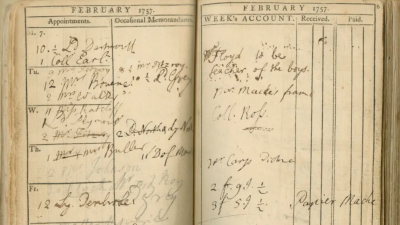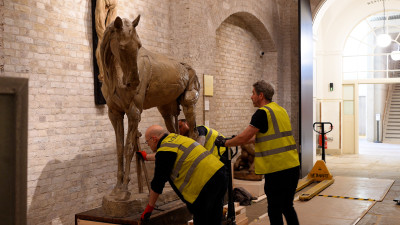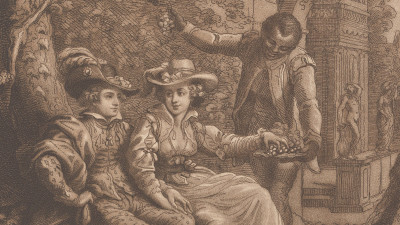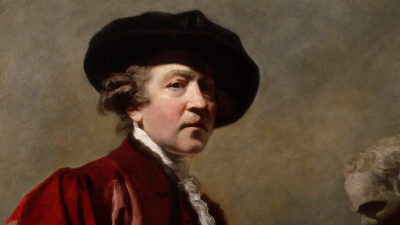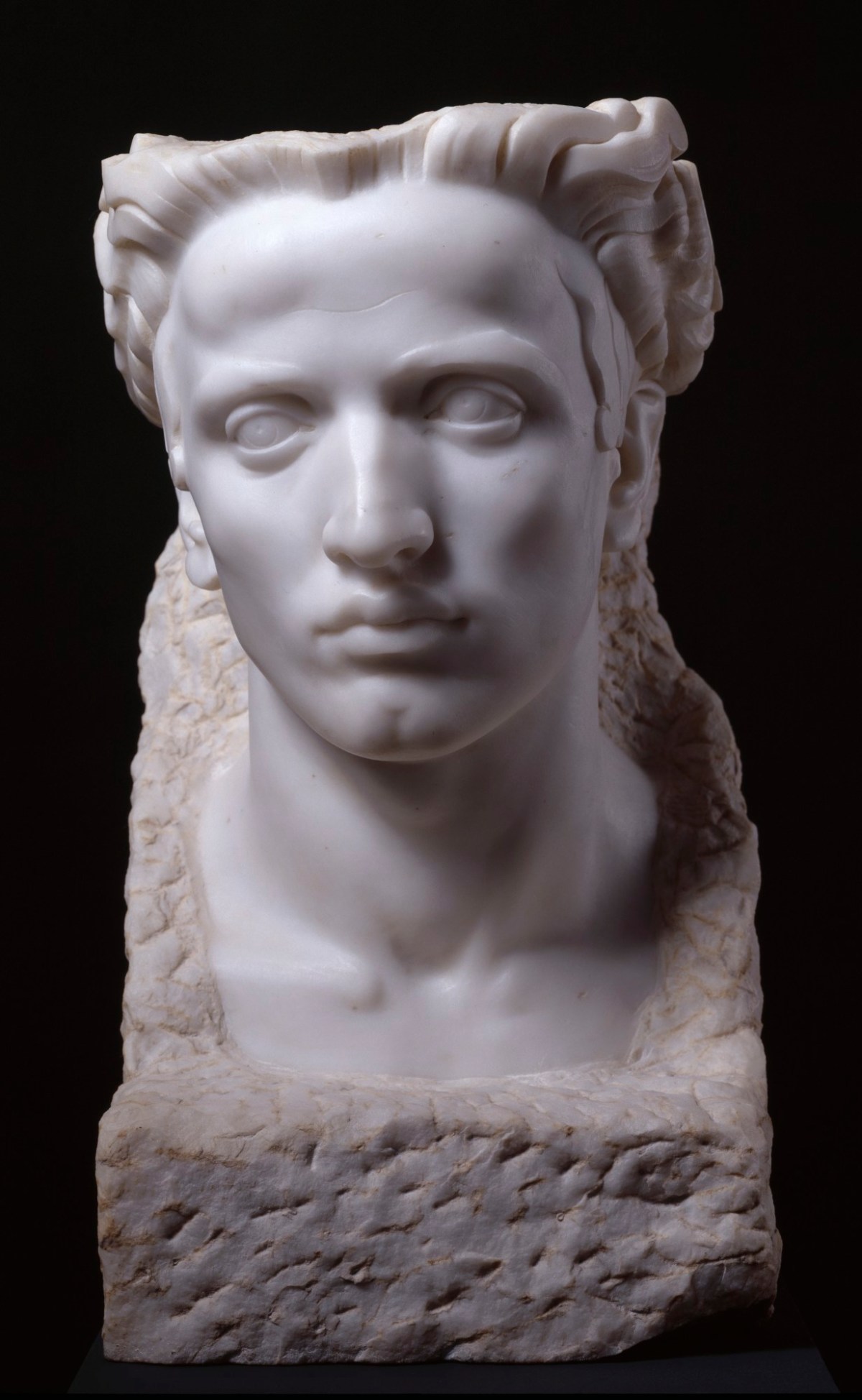
Henry Poole RA, Young Pan, 1928.
Marble. 413 mm x 229 mm x 190 mm, Weight: 33.3 kg. © Photo: Royal Academy of Arts, London. Photographer: Paul Highnam.
This image is not available to download. To licence this image for commercial purposes, contact our Picture Library at picturelibrary@royalacademy.org.uk
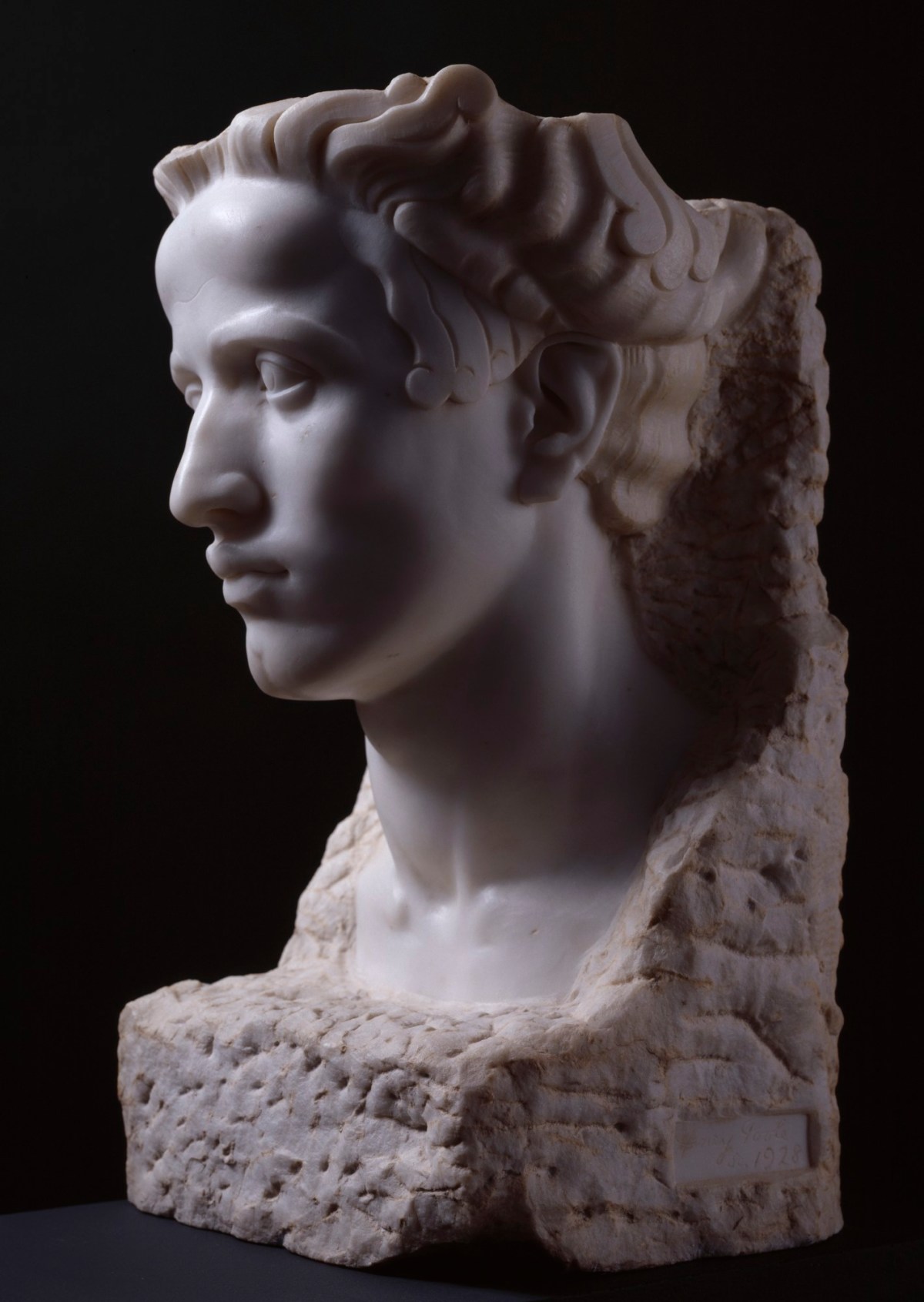
Henry Poole RA, Young Pan, 1928.
Marble. 413 mm x 229 mm x 190 mm, Weight: 33.3 kg. © Photo: Royal Academy of Arts, London. Photographer: Paul Highnam.
This image is not available to download. To licence this image for commercial purposes, contact our Picture Library at picturelibrary@royalacademy.org.uk
Young Pan, 1928
Henry Poole RA (1873 - 1928)
RA Collection: Art
Henry Poole's Diploma work 'Young Pan' is one of his later sculptures. It was first exhibited at the Royal Academy in 1928, shortly before his death. The sculpture's focus on youth and beauty can be related to European Symbolism and the New Sculpture movement. The figure of Pan (Greek god of shepherds) was often identified, in art and literature of the early twentieth century, with a specifically English Arcadianism. Poole contrasts the smooth, defined features of the youthful Pan with the coarse marble from which they emerge - perhaps hinting at the innate "earthiness" of Pan, who was often associated with fertility. Poole exhibited a bronze version of 'Young Pan' at the Royal Academy in 1926. A related work 'Mask of Pan' (1926) is in the Tate Britain collection.
Henry Poole attended the Lambeth School (1888) before joining the Royal Academy Schools (1892-1897). While studying at the R.A. he spent time working in the studios of Harry Bates and G.F. Watts. In 1900 he won a commission to design a sculptural group symbolising 'Patriotism' for the exterior of Cardiff City Hall. He went on to collaborate with the architect E.A. Rickards, designing architectural sculpture for buildings such as Deptford Town Hall (1903), Westminster Central Hall (1905-1911), Colnaghi's, New Bond Street (1912). Other commissions included relief panels for the Public Library and Baths, Great Smith Street, London (1892-1893), the Edward VII memorial, Bristol (1913), sculptures for the Chapel of St Michael and St George, St Paul's Cathedral and the interior decoration of The Black Friar Pub, Queen Victoria St, London, remodelled by Herbert Fuller Clark in 1905.
During the First World War, Poole was a member of the Camouflage School headed by Solomon J Solomon, R.A.. He exhibited regularly at the Royal Academy from 1894-1928 and was Master of Sculpture at the RA Schools (1921-1927). Poole was elected an ARA in 1920 and an RA in 1927.
Object details
413 mm x 229 mm x 190 mm, Weight: 33.3 kg
